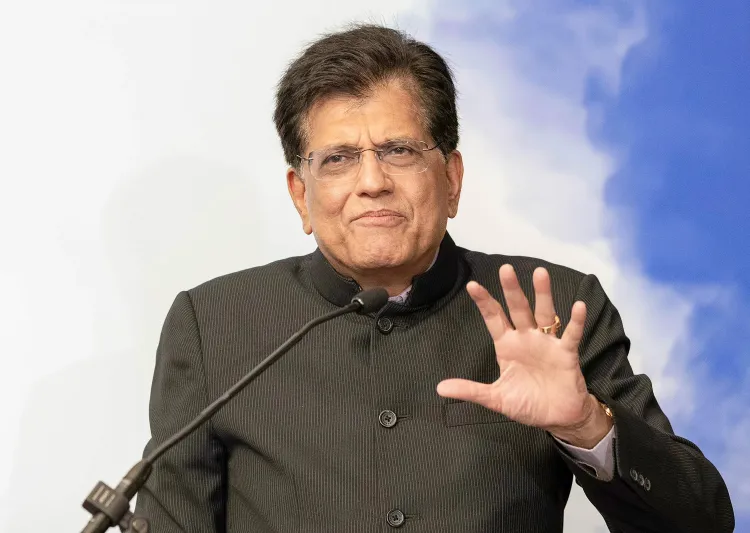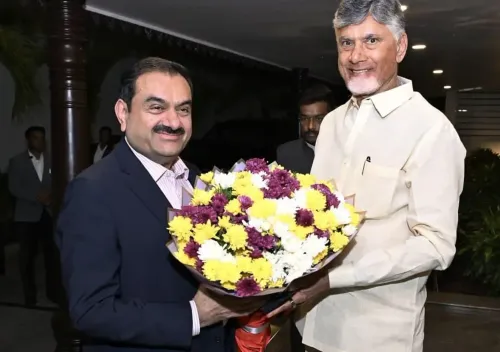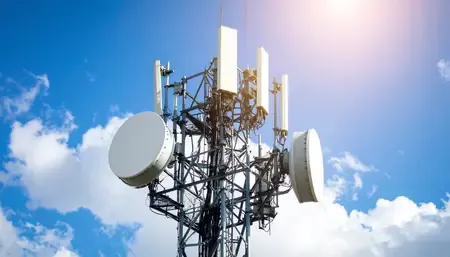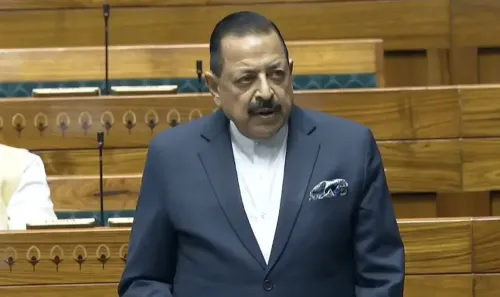Is India Leading the Charge in Global Energy Transition?

Synopsis
Key Takeaways
- India's solar power has expanded over 30 times in ten years.
- Achieved 2030 renewable energy goals eight years early.
- Emphasized collective responsibility in climate action.
- India contributes only 3% to global carbon emissions.
- Launched a 500-gigawatt interconnected national grid.
New Delhi, May 6 (NationPress) India is leading the way in the global energy transition, with solar power experiencing a staggering growth of over 30 times in the past decade, stated Union Minister of Commerce and Industry, Piyush Goyal, on Tuesday. He noted that the nation has reached its renewable energy goals for 2030 a remarkable eight years ahead of schedule.
During his address at the ‘Columbia India Energy Dialogue,’ the minister emphasized India's pivotal role in the global energy transition and reaffirmed the nation's dedication to inclusive and equitable climate action.
Goyal pointed out the collective obligation of all countries to address climate change. “Ultimately, the energy transition requires contributions from everyone. While the pace and scale of transition will vary based on each country's development level, the commitment must be shared universally,” he remarked.
The minister highlighted that climate change is an immediate and pressing issue, necessitating tailored solutions from every nation.
“While pathways may differ, the acknowledgment of the issue is shared. India has consistently taken a leadership stance. I believe COP21 would not have reached any significant conclusions without Prime Minister Shri Narendra Modi uniting the Global South and involving them as part of the solution rather than positioning them as adversaries,” he conveyed to the attendees.
Goyal expressed disappointment that the pledges made by developed countries during the Paris Agreement have largely gone unfulfilled.
“Since 2015, the primary concern has not only been climate change but also the inability of the developed world to fulfill commitments regarding technology transfers, long-term concessional climate financing, and support under the principle of Common But Differentiated Responsibilities (CBDR),” he stated.
Highlighting India’s accomplishments, Shri Goyal noted, “India contributes only 3 percent of global carbon emissions, even while accommodating 17 percent of the world’s population.”
“We attained our 2030 renewable energy target of 200 GW back in 2022—eight years ahead of schedule. Solar energy has expanded over 30 times in the last decade. India consistently submits its reports to the UNFCCC punctually, showcasing a model for global compliance,” he added.
The minister underscored the urgent need to tackle the fundamental causes of carbon emissions, particularly overconsumption and waste. “Excessive consumption, especially in affluent nations, contributes to systemic carbon emissions—from farm to table. Every stage—production, packaging, transport, storage, and disposal—adds to emissions. This behavioral trend must be addressed,” he insisted.
Reaffirming India’s commitment to the clean energy transition, Goyal highlighted the establishment of a 500-gigawatt interconnected national grid. This achievement was made possible by Prime Minister Modi's initiative in 2014 to connect all regional grids and invest billions in developing a unified national power framework.










